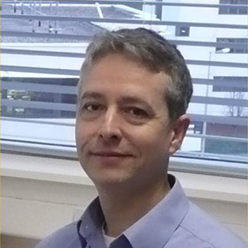Expertise from Electronics and Computer Science (ECS) at the University of Southampton will help improve food and water security for people in sub-Saharan Africa in a new four-year interdisciplinary research project.
The £5m programme, funded by Research Councils UK (RCUK), is part of wider investment in one of the most ambitious international research programmes ever created.
Leading experts from the UK, and in developing countries across the world, are joining forces to tackle some of the most serious global challenges. £225m has been invested across 37 interdisciplinary projects to address challenges in fields such as; health, humanitarian crises, conflict, the environment, the economy, domestic violence, society, and technology. The Global Challenges Research Fund (GCRF) Research Councils UK Collective Fund is supporting these latest projects with awards of between £2m to £8m.
âBuilding research capacity for sustainable water and food security in drylands of sub-Saharan Africaâ, the new £5m project driven by the University of Southampton, is being led by Professor Justin Sheffield of Geography and Environment and co-investigated by Dr Sarvapali (Gopal) Ramchurn from ECS.
The programme will connect scientists from Kenya, Ghana and Malawi with each other and UK researchers, to help set in motion water and food research projects aimed at benefitting the region. Sarvapali is leading on collaborations and networking with industry during the project and will be looking into the use of crowdsourcing technologies to map water bodies and agricultural land in sub-Saharan Africa.
âThis is a great opportunity to grow the reach of ECS expertise beyond the western world and establish a long term collaborations with researchers in African universities,â? he says. âBy doing so, we aim to address water and food security problems that impact millions of peopleâs lives.â?
Commenting on the funding award, Vice-President (Research and Enterprise) at the University of Southampton, Professor Mark Spearing, says: âThis project is exemplary in bringing very high quality research to bear on a problem of global importance, with a strong group of international partners. I wish the team every success in delivering it and achieving its goals.â?
The Global Challenges Research Fund aims to build upon research knowledge in the UK, and strengthen capacity overseas, to help address challenges, informed by expressed need in developing countries.
Related Links
The University cannot accept responsibility for external websites.

